Sensing the world around us
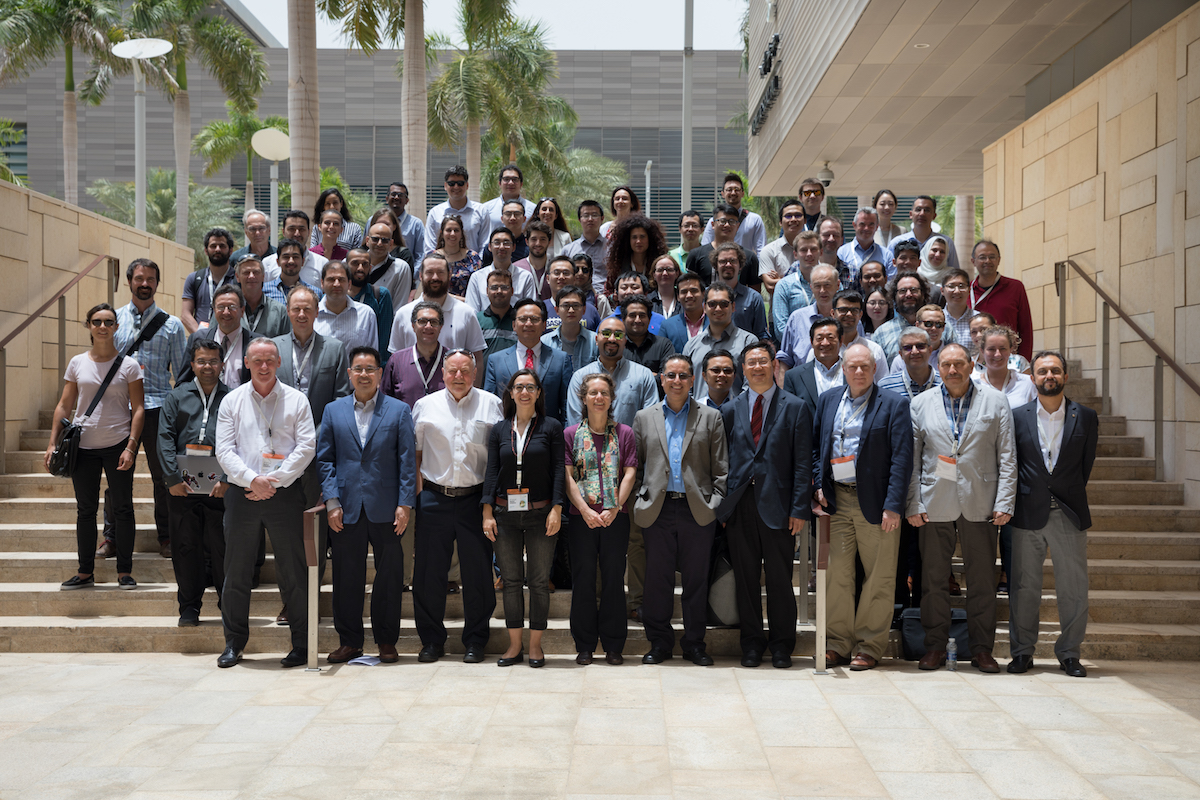
The University hosted the KAUST Sensor Initiative in May, bringing together leading experts in sensor development, material science, energy, communications and data analysis. File photo.
-By Naadiya Carrim, KAUST Office of Sponsored Research
"It is our responsibility as an institution—and as scientists—to provide the next generation with the ability to fully communicate their research in a coherent and clear manner and to upskill those who will no doubt apply sensing technologies to many more aspects of our lives," said Dr. Manus Ward from the Office of Sponsored Research (OSR).
Ward spoke during the recent KAUST Sensor Initiative, which brought together global experts in sensor development, material science, energy, communications and data analysis on the KAUST campus.
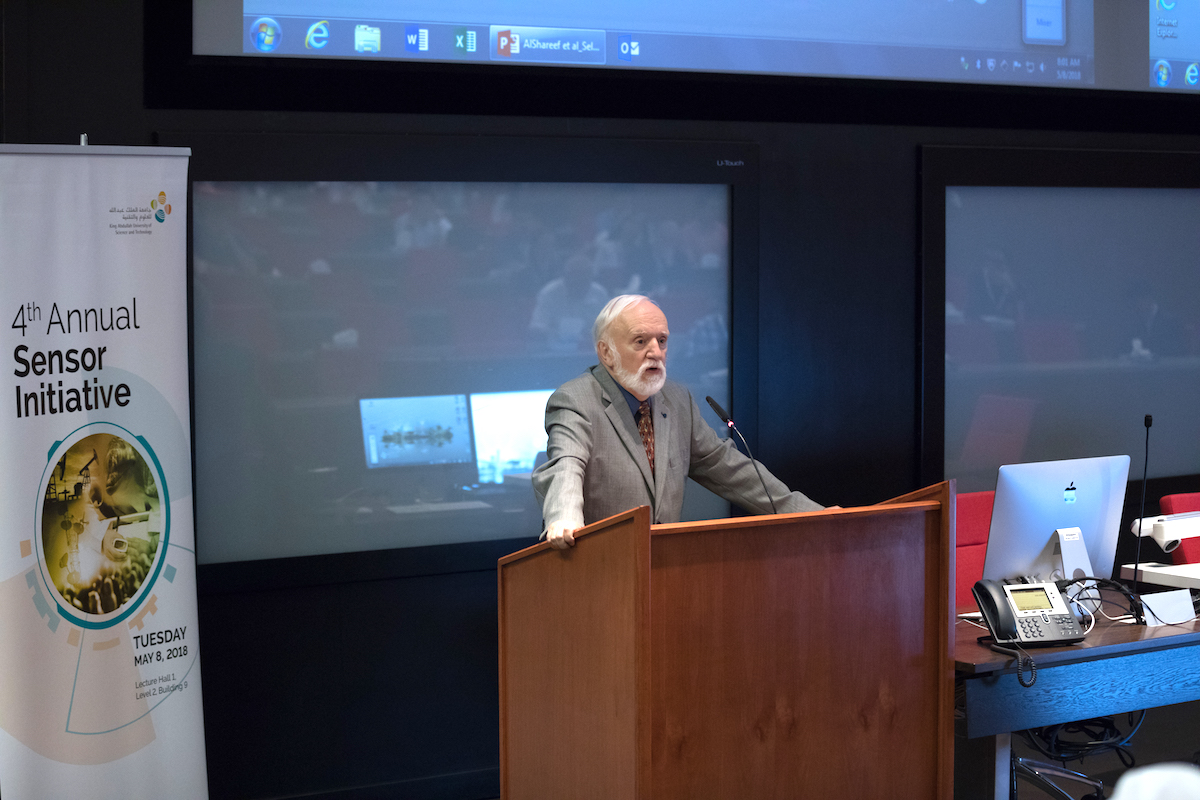
Senior Vice President for Research, Innovation and Economic Development Professor Jean Frechet opened the recent KAUST Sensor Initiative, stating, 'Our goal is success.' File photo.
"After three years of the KAUST Sensor Initiative, we now have live demos that are extremely exciting, a number of which were recently showcased at MIT for Crown Prince Mohammad Bin Salman," said Khaled Nabil Salama, workshop chair and KAUST professor of electrical engineering.
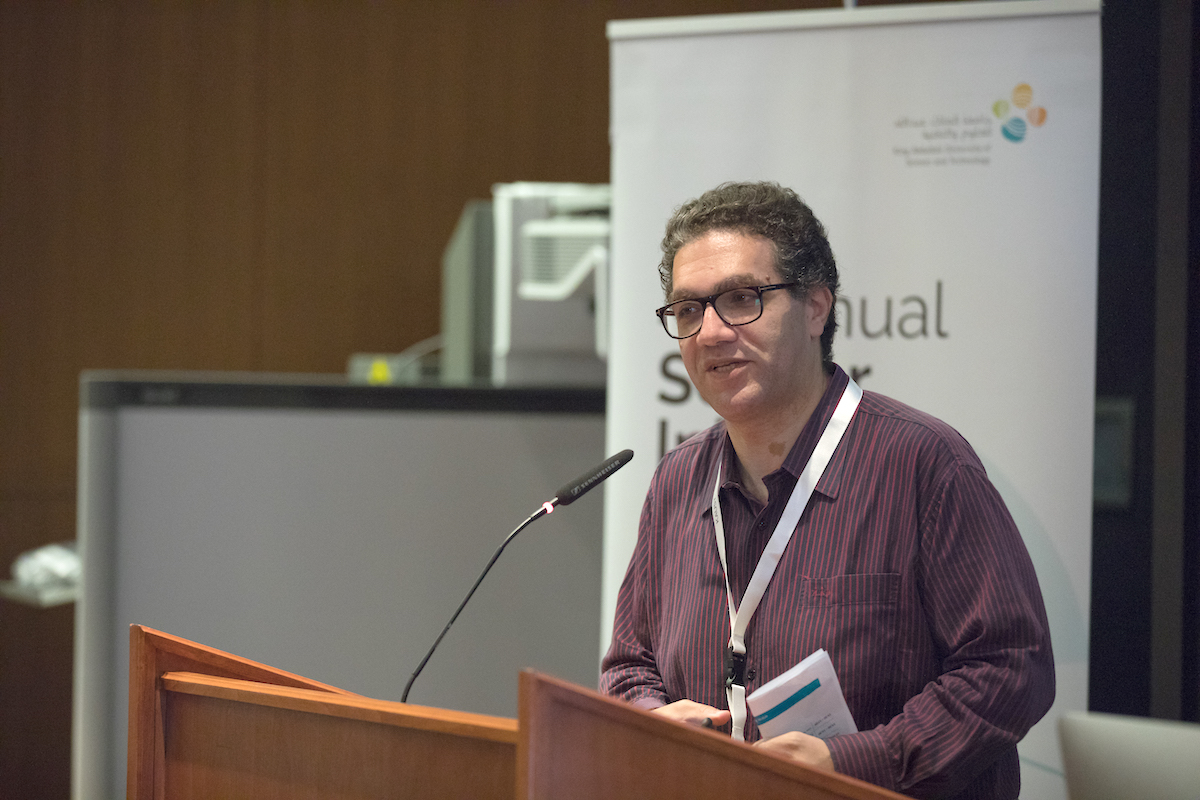
Khaled Nabil Salama, KAUST professor of electrical engineering and chair of the recent on campus Sensor Initiative, speaks during the event. File photo.
The future of sensors
It is estimated that there will be over 30 billion internet of things (IoT) devices by 2020. Because of this major global phenomenon, the initiative sought to address the advancement of a network of smarter, interactive physical IoT devices with intelligent sensor technologies embedded.
Workshop participant and project lead Mohamed-Slim Alouini, KAUST professor of electrical engineering and associate dean of the University's Computer, Electrical and Mathematical Science and Engineering (CEMSE) division, mentioned that the ultimate objective for the IoT is to have "smart sensors and networks connected to the internet, thus enabling humans to make smarter decisions."
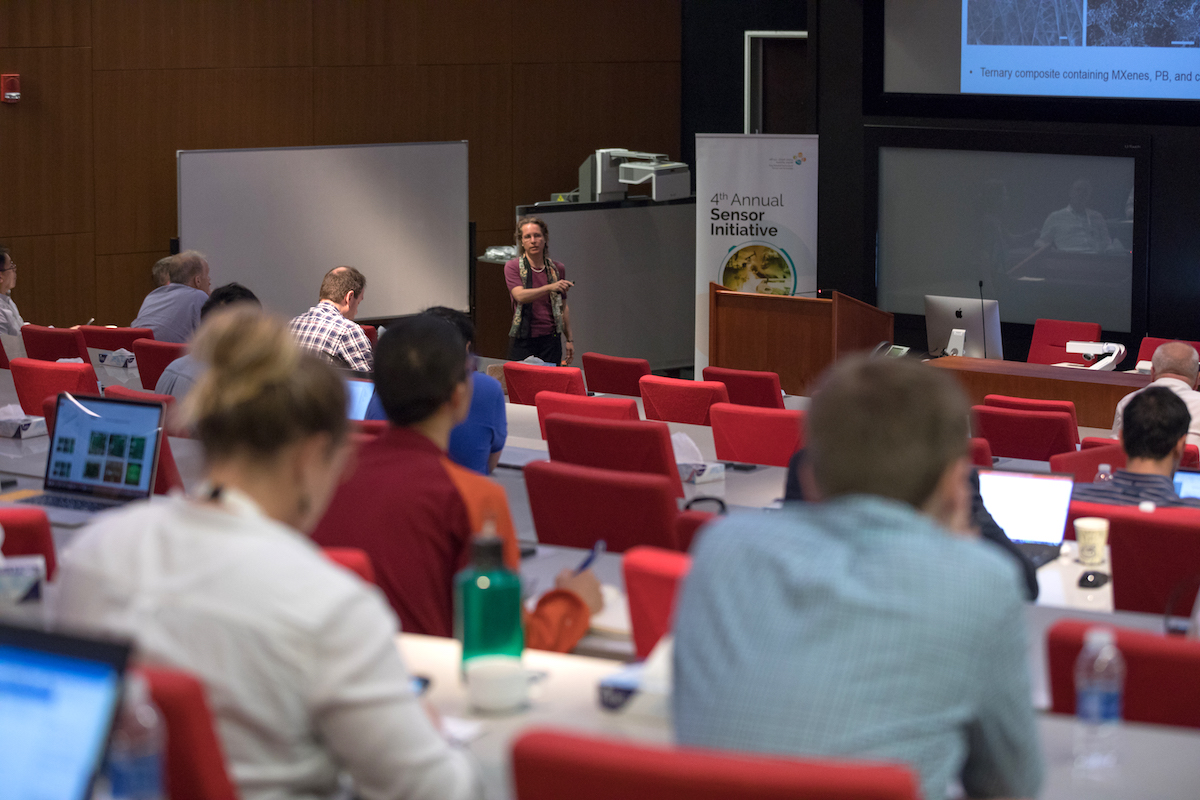
An audience of KAUST students, professors and postdoctoral fellows and distinguished visitors listens to a speaker during the recent on campus Sensor Initiative event. File photo.
"As an example to help contextualize the number of sensors surrounding us in the modern world today, an average car nowadays has more than 200 sensors," Wolfbeis said.
Training the next generation
As part of the workshop, live hands-on demonstrations gave researchers the opportunity to showcase their working prototypes. One example was a flexible sensor for monitoring the speed of dolphins. The prototype, which was developed by KAUST Ph.D. student Altynay Kaidarova, who works under the supervision of Associate Professor Jurgen Kosel, was recently deployed as part of a multidisciplinary project in the Oceanographic Aquarium in Valencia, Spain. The project received plenty of attention, as it was covered by Spanish national media and the National Geographic Society.
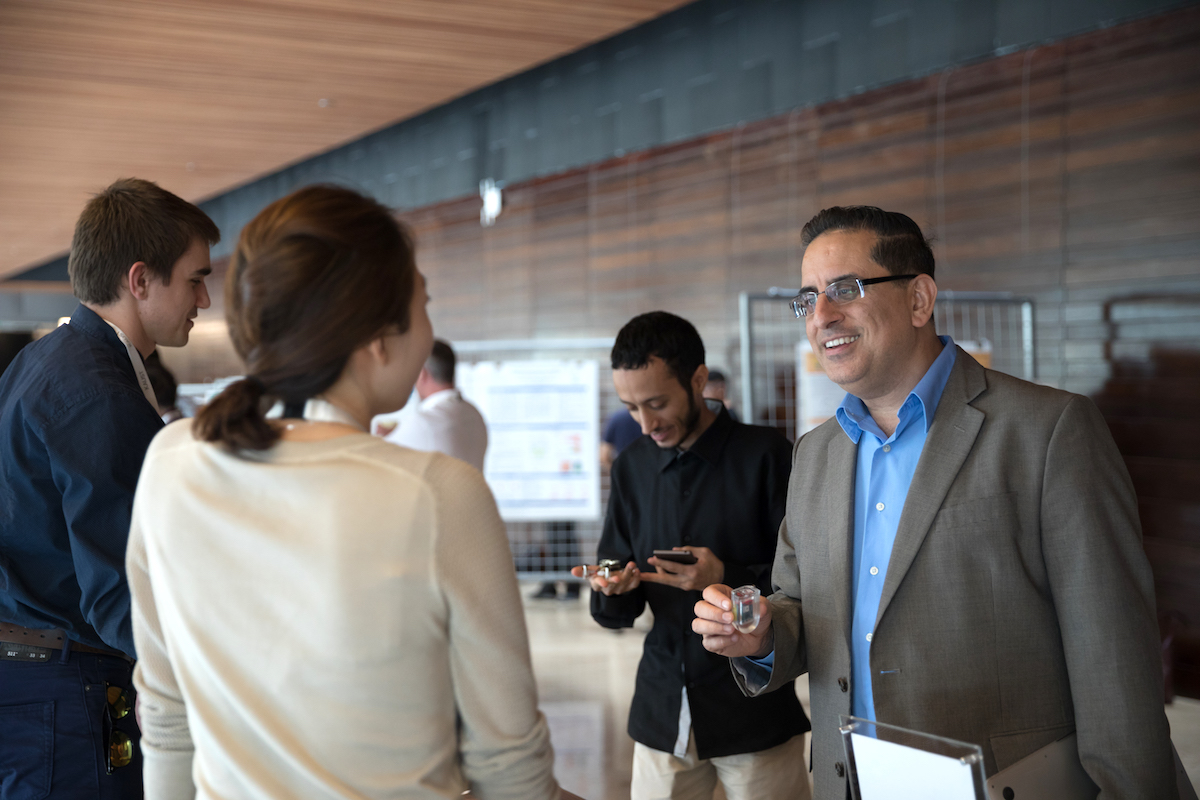
KAUST Professor of Material Science and Engineering Husam Alshareef (right) discusses a sensor device with a student during the recent on campus Sensor Initiative event. File photo.
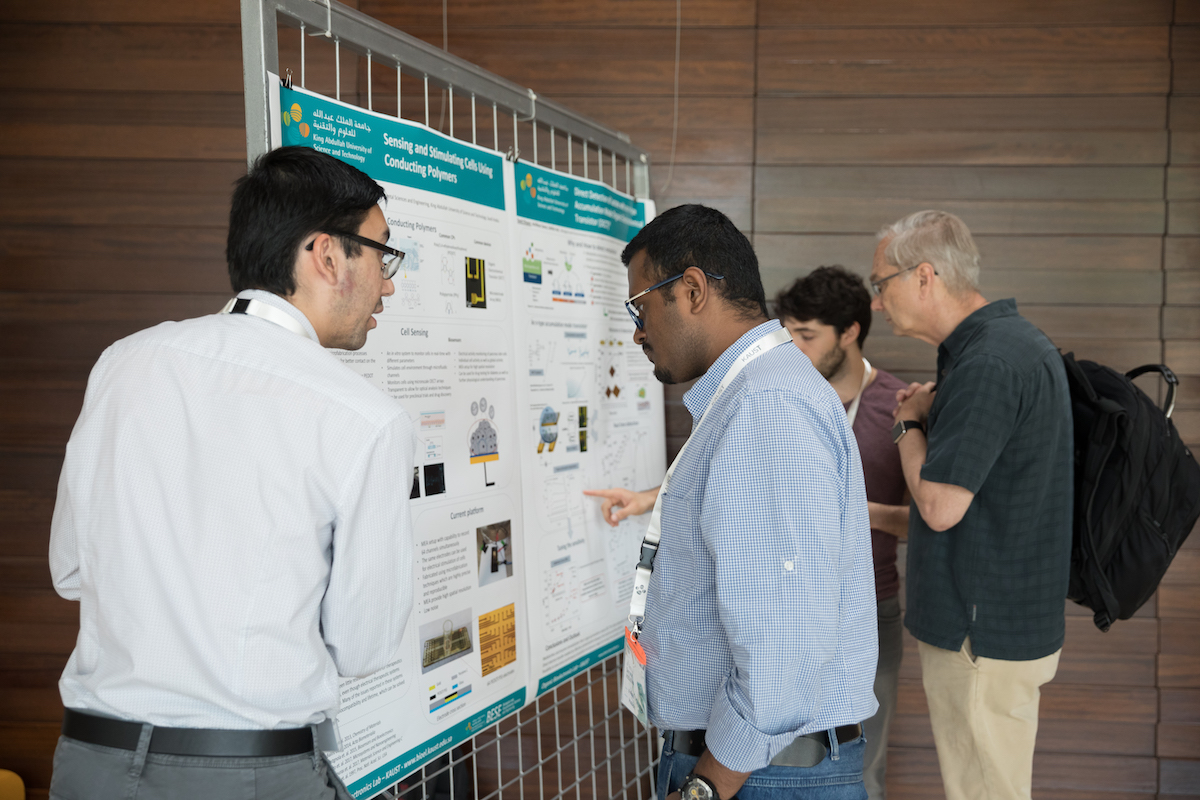
Students present their research work as part of the recent on campus KAUST Sensor Initiative event. File photo.
"Sensors are the way forward, but we must not forget the beautiful planet we live on and our obligation to respect and protect it," Patzek said.
Related stories:
-
The next generation of sensing platforms
-
The best and the brightest
-
Conference highlights University's research and collaborations
-
The KAUST Frontiers of Sensor Science Symposium

